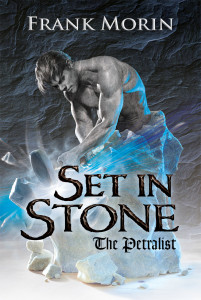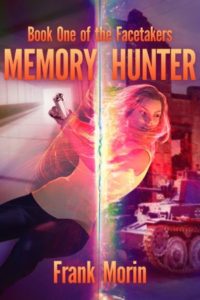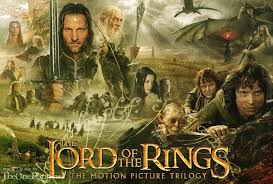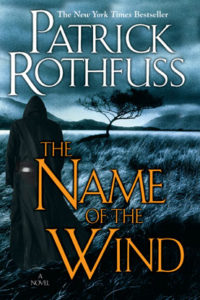 A distant explosion jarred Mike out of bed. He stumbled upright in the dark, groping for boots with bare feet as he reached for his weapon.
A distant explosion jarred Mike out of bed. He stumbled upright in the dark, groping for boots with bare feet as he reached for his weapon.
Where this scene goes next depends on a lot of things, including who Mike is, his profession, and state of mind. It also depends on what type of story we’re telling and which events will move the plot forward.
It also depends upon setting.
If the setting is 1800s wild west, then the explosion was probably from dynamite in a nearby mine, his boots will probably be cowboy style, and his weapon will be a six-shooter, double-barreled shotgun, or lever-action 30-30. If it’s a future space war, the explosion might be an unexpected encounter with the alien pirate space slugs, his boots an armored hovering model, and his weapon a plasma laser.
If the setting is an episode of My Little Pony, well, I’m not entirely sure where I’d go with that one yet.
That setting will also heavily impact the type of plot we can expect to enjoy. As we’ve explored through some really excellent posts this month, developing an effective, engaging setting is a critical component to building a great story.
Setting also plays an important role in reinforcing plot and character, helping to lock the readers into the world, and suggest certain expectations that we as the author can fulfill, exceed, or flip on their heads.
 In my YA fantasy, Set in Stone, the setting grew in sync with the character, the plot, and the magic system, reinforcing all of them and creating a rich tapestry upon which to tell the tales of Connor and his friends.
In my YA fantasy, Set in Stone, the setting grew in sync with the character, the plot, and the magic system, reinforcing all of them and creating a rich tapestry upon which to tell the tales of Connor and his friends.
The magic system came first – based on plain old rocks. So where better to set the story for a rock-based magic system than a quarry? Placing Connor in a small quarry village up in the mountains helped define the type of characters we’d likely see, as well as their level of education and exposure to the world. With that understanding, I more easily identified directions the plot would likely need to flow in order to educate the characters, challenge them, and threaten their world.
Could I have set the story in a grassland, with the nearest rock a hundred miles away? Sure, but that would have dramatically altered the plot and my characters. I didn’t want the story to be about the quest to find magic. I wanted to explore the fun aspects of the magic system, so I needed lots of rocks. Plus in that world, the quarry becomes an important commodity.
So as you build your stories, begin defining your plot, and start bringing your characters to life, make sure you weave the significance of your setting into all of it. That helps bring the world to life, gives reason and continuity for your characters, their histories, and their choices, and helps tie them into the plot and the world you are building.
For pantsers, when you’re free-writing and exploring the fun world you’re creating, it’s important to understand that as cool aspects of your world and setting become clear, they will impact your characters and your plot. Take a moment to scan back over your story and identify ways to leverage those new aspects to setting. Your story will be stronger for it.
About the Author: Frank Morin

 Frank Morin loves good stories in every form. When not writing or trying to keep up with his active family, he’s often found hiking, camping, Scuba diving, or enjoying other outdoor activities. For updates on upcoming releases of his popular Petralist YA fantasy novels, or his fast-paced Facetakers Urban Fantasy/Historical thrillers, check his website: www.frankmorin.org
Frank Morin loves good stories in every form. When not writing or trying to keep up with his active family, he’s often found hiking, camping, Scuba diving, or enjoying other outdoor activities. For updates on upcoming releases of his popular Petralist YA fantasy novels, or his fast-paced Facetakers Urban Fantasy/Historical thrillers, check his website: www.frankmorin.org





